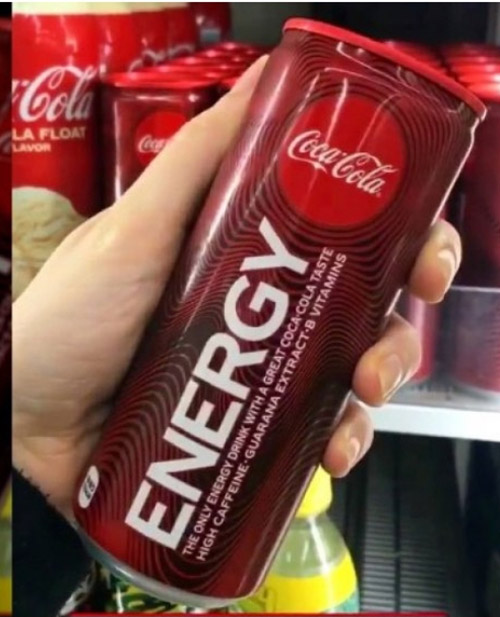Nutrition
By Nancy Adler
Everyone is looking for that quick “pick me up “ energy. You might have noticed new energy drinks are on store shelves all the time. The latest is called Coca-Cola Energy. Coca-Cola launched this product (Jan, 2020), for the first time joining the fast growing $12 Billion energy drink market. Some predict the entry of this trusted brand into this market will lead to even more consumption of these highly caffeinated beverages.
The company predicts the drink will be appealing because its caffeine levels are similar to those of rival energy drinks, without losing the familiar classic Coca-Cola flavor. This new drink has 114 mg of caffeine – that is three times more than regular Coke but less than twice as much as a cup of black coffee. Wow!
This brings up an important health question and one I am asked by my clients frequently. Is it safe to drink this much caffeine?
At just over a hundred milligrams of caffeine, an energy drink like this falls within the FDA’s safety guidelines. For healthy adults, they say 400mg of caffeine per day is generally considered safe. It is important to note the phrase “for healthy adults.” Caffeine (at this level or otherwise) is not safe for everyone.
It is recommended children and adolescents stay away from caffeine. Pregnant and breastfeeding women are urged to limit caffeine, and certain medical conditions like high blood pressure, anxiety, and migraines can be aggravated by the drug (yes, it is a drug). It is important to talk to your doctor to find out if you should limit caffeine.
That said, caffeine is one of the most widely available stimulants. It is in hundreds of over-the-counter products and even healthy adults need to be aware of just how much caffeine they are consuming, cumulatively, on any given day. Here are some examples of products that contain caffeine:
- Black coffee
- Black Tea
- Dark Chocolate
- Certain medications
- Flavorings
- Energy Drinks
- Dietary Supplements
- Protein Drinks
- Decaf coffee and tea
It is important to read product labels and keep track of your daily caffeine intake. Your body will also start letting you know when you have had too much or if you are sensitive to it. Here are some of the most common symptoms you might experience:
- Headache
- Dizziness
- Problems sleeping
- Nausea
- Heartburn
- Shaking
- Fast heart beat
- Diarrhea
Taking in too much caffeine can be more than uncomfortable, it can also be dangerous. Here some signs of caffeine overdose:
- Vomiting
- Irregular heartbeat
- Seizures
- Panic attack
- Confusion
If you recognize signs of caffeine overdose in yourself or someone else, get medical help immediately. It can lead to death.
We all love that first cup of coffee in the morning to get us moving. Please keep in mind Caffeine is a drug that can have a powerful effect on your brain and nervous system. As store shelves fill up with ever more highly caffeinated products, it is more important than ever to keep an eye on your daily caffeine intake. If ever you are in doubt, just say no to that energy drink. The best plan of action is to try to eat healthier and exercise regularly and get natural, safe energy from nutrition packed foods.
If you have questions about the effects of caffeine on your health, or you’d like some advice on how to cut caffeine from your diet as painlessly as possible, seek nutritional advice to answer your questions.
Nancy Adler is a certified nutritionist and practitioner in Linwood. Her office is located in Cornerstone Commerce Center, 1201 New Rd. Learn about her practice at ww.nancyadlernutrition.com (609)653-4900
Nancy is the Recipient of the Best of The Press 2020 Gold Award. You may listen to Nancy every Sunday at 2 pm Nancy Adler Nutrition LIVE! NewsTalk 1400 WOND

















